 W
WHoward Adelman is a Canadian philosopher and former university professor. He retired as Professor Emeritus of Philosophy at York University in 2003. Adelman was one of the founders of Rochdale College, as well as the founder and director of York's Centre for Refugee Studies. He was editor of Refuge for ten years, and since his retirement he has received several honorary university and governmental appointments in Canada and abroad. Adelman was the recipient of numerous awards and grants, and presented the inaugural lecture in a series named in his honor at York University in 2008.
 W
WAlex Battler, known in Russia under the pen name Oleg Arin, is a Soviet-born Russian-Canadian scholar and political writer. He is a member of the organization «Defend Science» (US).
 W
WFrançoise Elvina Baylis is a Canadian bioethicist whose work is at the intersection of applied ethics, health policy, and practice. The focus of her research is on issues of women's health and assisted reproductive technologies, but her research and publication record also extend to such topics as research involving humans, gene editing, novel genetic technologies, public health, the role of bioethics consultants, and neuroethics. Baylis' interest in the impact of bioethics on health and public policy as well as her commitment to citizen engagement and participatory democracy sees her engage with print, radio, television, and other online publications.
 W
WGary Norman Arthur Botting is a Canadian legal scholar and criminal defense lawyer as well as a poet, playwright, novelist, and critic of literature and religion, in particular Jehovah's Witnesses. The author of 40 published books, he is one of the country's leading authorities on extradition law. He is said to have had "more experience in battling the extradition system than any other Canadian lawyer."
 W
WSamantha Brennan is a British-born philosopher and scholar of women's studies who is currently dean of the College of Arts and faculty member in the Department of Philosophy at the University of Guelph. She was previously a professor in the Department of Women's Studies and Feminist Research at Western University, Canada. She remains a member of Western's Rotman Institute of Philosophy and the graduate faculty of the Departments of Political Science and of Philosophy. Brennan was Department Chair of Philosophy at Western from 2002–2007, and 2008–2011. She is a past president of the Canadian Philosophical Association (2017–18).
 W
WMario Augusto Bunge was an Argentine philosopher and physicist who was mainly active in Canada.
 W
WPatricia Smith Churchland is a Canadian-American analytic philosopher noted for her contributions to neurophilosophy and the philosophy of mind. She is UC President's Professor of Philosophy Emerita at the University of California, San Diego (UCSD), where she has taught since 1984. She has also held an adjunct professorship at the Salk Institute for Biological Studies since 1989. She is a member of the Board of Trustees Moscow Center for Consciousness Studies of Philosophy Department, Moscow State University. In 2015, she was elected a Fellow of the American Academy of Arts & Sciences. Educated at the University of British Columbia, the University of Pittsburgh, and the University of Oxford, she taught philosophy at the University of Manitoba from 1969 to 1984 and is married to the philosopher Paul Churchland. Larissa MacFarquhar, writing for The New Yorker, observed of the philosophical couple that: "Their work is so similar that they are sometimes discussed, in journals and books, as one person."
 W
WGeorge Barton Cutten (1874–1962) was a Canadian-born psychologist, moral philosopher, historian and university administrator. He was president of Acadia University from 1910 to 1922 and Colgate University from 1922 to 1942.
 W
WJoseph Fernand Lionel Vianney Décarie,, was a Canadian philosopher. He was born November 28, 1917, in Montreal, Canada and died there on September 6, 2009, of pneumonia.
 W
WVincenzo Di Nicola is an Italian-Canadian psychologist, psychiatrist and family therapist, and philosopher of mind.
 W
WSir Robert Alexander Falconer was a Canadian academic and bible scholar.
 W
WHerman Northrop Frye was a Canadian literary critic and literary theorist, considered one of the most influential of the 20th century.
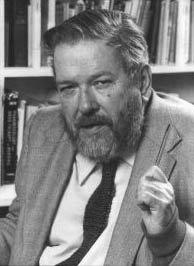 W
WGeorge Parkin Grant (1918–1988) was a Canadian philosopher and political commentator. He is best known for his Canadian nationalism, political conservatism, and his views on technology, pacifism, and Christian faith. He is often seen as one of Canada's most original thinkers.
 W
WIan MacDougall Hacking is a Canadian philosopher specializing in the philosophy of science. Throughout his career, he has won numerous awards, such as the Killam Prize for the Humanities and the Balzan Prize, and been a member of many prestigious groups, including the Order of Canada, the Royal Society of Canada and the British Academy.
 W
WManly Palmer Hall was a Canadian-born author, lecturer, astrologer and mystic. He is best known for his 1928 work The Secret Teachings of All Ages. Over his 70 year career, he gave thousands of lectures, including two at Carnegie Hall, and published over 150 volumes. In 1934, he founded The Philosophical Research Society in Los Angeles, which he dedicated to the "Truth Seekers of All Time", with a research library, lecture hall and publishing house. Many of his lectures can be found online and his books are still in print.
 W
WTed Honderich is a Canadian-born British professor of philosophy, who was Grote Professor Emeritus of the Philosophy of Mind and Logic, University College London.
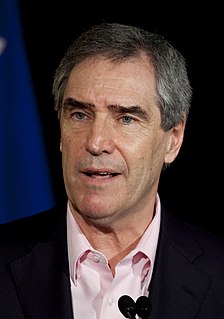 W
WMichael Grant Ignatieff is a Canadian author, academic and former politician. He was the leader of the Liberal Party of Canada and Leader of the Official Opposition from 2008 until 2011. Known for his work as a historian, Ignatieff has held senior academic posts at the universities of Cambridge, Oxford, Harvard, and Toronto. He is currently rector and President of Central European University.
 W
WAndrew David Irvine is a Canadian academic who teaches at the University of British Columbia. He holds a PhD in philosophy from Sydney University and is a professor of philosophy and mathematics at UBC Okanagan. He is a past vice-chair of the UBC Board of Governors, a past head of the Department of Economics, Philosophy and Political Science, a past president of the British Columbia Civil Liberties Association, and a member of the board of directors of the Society for Academic Freedom and Scholarship. An advocate of traditional democratic civil liberties, Irvine has written about the importance of the rule of law for both modern and ancient democracies. He has held visiting positions at several Canadian and American universities and has been recognized as one of British Columbia's most influential public intellectuals.
 W
WMark Gerald Kingwell is a Canadian professor of philosophy and associate chair at the University of Toronto's Department of Philosophy. Kingwell is a fellow of Trinity College. He specialises in theories of politics and culture.
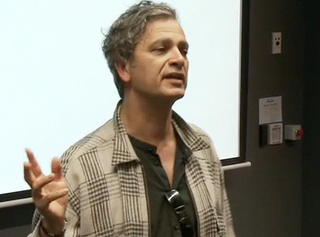 W
WNikolas Kompridis is a Canadian philosopher and political theorist. His major published work addresses the direction and orientation of Frankfurt School critical theory; the legacy of philosophical romanticism; and the aesthetic dimension(s) of politics. His writing touches on a variety of issues in social and political thought, aesthetics, and the philosophy of culture, often in terms of re-worked concepts of receptivity and world disclosure—a paradigm he calls "reflective disclosure".
William Kymlicka is a Canadian political philosopher best known for his work on multiculturalism and animal ethics. He is currently Professor of Philosophy and Canada Research Chair in Political Philosophy at Queen's University at Kingston, and Recurrent Visiting Professor in the Nationalism Studies program at the Central European University in Budapest, Hungary. For over 20 years, he has lived a vegan lifestyle, and he is married to the Canadian author and animal rights activist Sue Donaldson.
 W
WBenoît Lacroix was a Quebec theologian, philosopher, Dominican priest, professor in medieval studies and historian of the Medieval period, and author of almost 50 works and a great number of articles.
 W
WGregory Victor Loewen is a social philosopher in the traditions of hermeneutics and phenomenology. The author of over two dozen scholarly non-fiction books, he is possibly the most prolific of such writers of Generation X and is age-relative one of a number of modern period academic writers to have produced a significant body of work early in their careers, along with Herder, de Bono, Spir, Joad, Aguilera, and Schelling.
 W
WBernard Joseph Francis Lonergan was a Canadian Jesuit priest, philosopher, and theologian, regarded by many as one of the most important thinkers of the 20th century.
 W
WJohn Malcolm MacEachran was a Canadian philosopher and psychologist, whose most notable credentials involved the development of the Psychology and Philosophy Department at the University of Alberta. He was a co-founder of the Canadian Psychological Association and the appointed Chairman of the Alberta Eugenics Board which was responsible for approving the sterilization of thousands of Albertans, hundreds of which were without consent.
 W
WLou Marinoff is a professor of philosophy at The City College of New York, in New York City in the United States. He is the founder of the American Philosophical Practitioners Association, and has written several books.
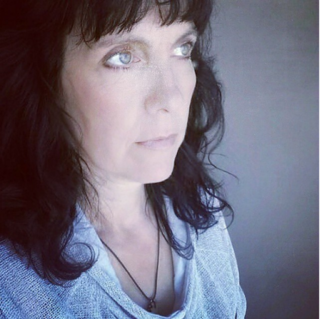 W
WHeather Marsh is a philosopher, programmer and human rights activist. She is the author of the Binding Chaos series, a study of methods of mass collaboration and the founder of Getgee, a project to create a global data commons and trust network.
 W
WHerbert Marshall McLuhan was a Canadian philosopher, whose work is among the cornerstones of the study of media theory. Born in Edmonton, Alberta, McLuhan studied at the University of Manitoba and the University of Cambridge. He began his teaching career as a professor of English at several universities in the US and Canada before moving to the University of Toronto in 1946, where he remained for the rest of his life.
 W
WJohn Clark Murray was a Scottish philosopher and professor. He held the Chair of Mental and Moral Philosophy at Queen's University from 1862 to 1872, and at McGill University from 1872 until 1903. During his academic career, Murray became the first professor at Queen's to offer courses to women; however, his equality advocacy caused unrest among the male professors. He was married to Margaret Polson Murray who founded the Imperial Order Daughters of the Empire.
 W
WJan Narveson is professor of philosophy emeritus at the University of Waterloo, in Waterloo, Ontario, Canada. An anarcho-capitalist and contractarian, Narveson's form of libertarian anarchism is deeply influenced by the thought of Robert Nozick and David Gauthier.
 W
WIsabel Paterson was a Canadian-American journalist, novelist, political philosopher, and a leading literary and cultural critic of her day. Historian Jim Powell has called Paterson one of the three founding mothers of American libertarianism, along with Rose Wilder Lane and Ayn Rand, who both acknowledged an intellectual debt to Paterson. Paterson's best-known work, The God of the Machine (1943), a treatise on political philosophy, economics, and history, reached conclusions and espoused beliefs that many libertarians credit as a foundation of their philosophy. Her biographer Stephen D. Cox (2004) believes Paterson was the "earliest progenitor of libertarianism as we know it today." In a letter of 1943, Rand wrote that "The God of the Machine is a document that could literally save the world ... The God of the Machine does for capitalism what Das Kapital does for the Reds and what the Bible did for Christianity."
 W
WLeonard Sylvan Peikoff is a Canadian-American philosopher. He is an Objectivist and was a close associate of Ayn Rand, who designated him heir to her estate after her death. He is a former professor of philosophy and host of a nationally syndicated radio talk show. He co-founded the Ayn Rand Institute (ARI) in 1985 and is the author of several books on philosophy.
 W
WJean-Jacques Pelletier is a French Canadian philosophy professor and author. Pelletier was a long-time philosophy teacher with the Lévis-Lauzon post-secondary school, but is best known in several media as an author of French-language thrillers, some of which have an element of fantasy. Many of his works have received critical acclaim, as his short story "La Bouche barbelée" won a CBC/Radio-Canada contest in 1993.
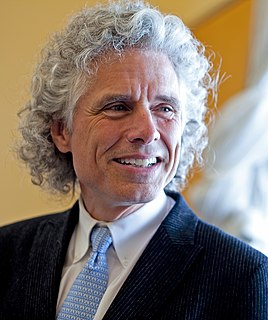 W
WSteven Arthur Pinker is a Canadian-American cognitive psychologist, linguist, and popular science author. He is an advocate of evolutionary psychology and the computational theory of mind.
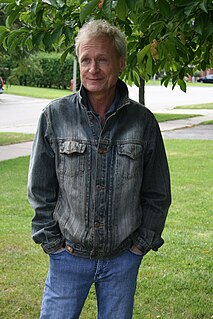 W
WBruce William Powe, commonly known as B. W. Powe, is a Canadian poet, novelist, essayist, philosopher, and teacher.
 W
WJohn de Ruiter is a Canadian nondualist author who conducts meetings in Edmonton, Alberta and abroad.
 W
WJohn Ralston Saul is a Canadian writer, political philosopher, and public intellectual. Saul is most widely known for his writings on the nature of individualism, citizenship and the public good; the failures of manager-led societies; the confusion between leadership and managerialism; military strategy, in particular irregular warfare; the role of freedom of speech and culture; and critiques of the prevailing economic paradigm. He is a champion of freedom of expression and was the International President of PEN International, an association of writers. Saul is the co-founder and co-chair of the Institute for Canadian Citizenship, a national charity promoting the inclusion of new citizens. He is also the co-Founder and co-Chair of 6 Degrees, the global forum for inclusion. Saul is also the husband to the former Governor General Adrienne Clarkson, making him the Viceregal consort of Canada during most of her service (1999-2005).
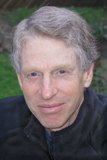 W
WArthur Schafer is a Canadian ethicist specializing in bioethics, philosophy of law, social philosophy and political philosophy. He is Director of the Centre for Professional and Applied Ethics, at the University of Manitoba. He is also a Full Professor in the Department of Philosophy and an Ethics Consultant for the Department of Paediatrics and Child Health at the Health Sciences Centre in Winnipeg. For ten years he was Head of the Section of Bio-Medical Ethics in the Faculty of Medicine of the University of Manitoba. He has also served as Visiting Scholar Green College, Oxford.
 W
WWilliam Edward Seager is a Canadian philosopher. He is a Professor of philosophy at the University of Toronto, Scarborough. His academic specialties of the philosophy of mind, and the philosophy of science
 W
WMichel Seymour is a Canadian philosopher from Quebec and a professor at the Université de Montréal, where he has been teaching analytical philosophy since 1990.
 W
WBarry Stroud was a Canadian philosopher and professor at the University of California, Berkeley. Known especially for his work on philosophical skepticism, he wrote about David Hume, Ludwig Wittgenstein, the metaphysics of color, and many other topics.
 W
WWilliam Sweet is a Canadian philosopher, President of the Canadian Theological Society, and a past president of the Canadian Philosophical Association.
 W
WJean Vanier was a Canadian Catholic philosopher and theologian. In 1964, he founded L'Arche, an international federation of communities spread over 37 countries for people with developmental disabilities and those who assist them. In 1971, he co-founded Faith and Light with Marie-Hélène Mathieu, which also works for people with developmental disabilities, their families, and friends in over 80 countries. He continued to live as a member of the original L'Arche community in Trosly-Breuil, France, until his death.
 W
WMark Alan Walker is a Canadian-American philosopher. He is a Professor of Philosophy at New Mexico State University, where he occupies the Richard L. Hedden Endowed Chair in Advanced Philosophical Studies. Prior to his professorship at NMSU Prof. Walker taught at McMaster University in the department of philosophy and the Arts & Science Programme. He is the author of Happy-People Pills for All and Free Money for All. Walker founded and was president of the former nonprofit organization Permanent End International (2003–2007), which had been devoted to ending hunger, illiteracy and environmental degradation through the dissemination of modular aquaponics systems for farming. He serves on the editorial board of the Journal of Evolution and Technology and on the board of directors of the Institute for Ethics and Emerging Technologies. He is a former board member of the non-profit organization Humanity Plus.
 W
WC. Kenneth Waters is Canada Research Chair in Logic and the Philosophy of Science and Professor of Philosophy at the University of Calgary. Recently Waters has been named AAAS Fellow and holds the title of president of the Philosophy of Science Association.
 W
WNettie Wiebe is a Canadian professor. She grew up near Warman, Saskatchewan. She has a BA and MA in Philosophy from the University of Saskatchewan and a Ph.D in Philosophy from the University of Calgary.